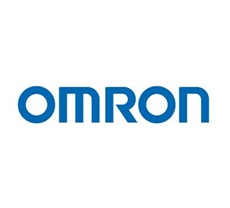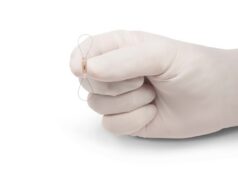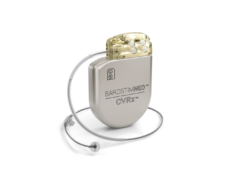 Omron Healthcare announced recently that it has successfully concluded a three-month study demonstrating how remotely monitored vital signs can facilitate early medical intervention in patients with heart failure.
Omron Healthcare announced recently that it has successfully concluded a three-month study demonstrating how remotely monitored vital signs can facilitate early medical intervention in patients with heart failure.
Conducted in collaboration with Kyoto Prefectural University of Medicine (Kyoto, Japan), with support from Japan’s Ministry of Economy, Trade and Industry (METI), the study examined how real-time sharing of patient data—including blood pressure, body weight and electrocardiogram (ECG) readings—can detect early signs of heart failure.
During the study, patients recorded daily measurements at home using Omron’s smart health devices and the Omron connect mobile app. These data were automatically shared with certified cardiovascular nurses and heart failure care experts who monitored changes remotely. In cases where potential indicators of heart failure were observed, patients were contacted directly and referred for clinical evaluation.
An Omron press release notes that early detection is “crucial” for patients with heart failure, and this study saw warning signs detected in some 33% of participants (seven out of 21), thereby enabling early intervention and treatment. By pre-empting the development of potentially severe or life-threatening symptoms, this approach can not only ease the burden on healthcare resources but also bring clear benefits in reducing medical costs for patients, the release adds.
Ultimately, more than 90% of study participants continued their daily health measurements for three months, while 86% reported high satisfaction with the integration of home-based data into their personal health journey.
The release goes on to note that such a system represents a “significant advance” on the standard approach in Japan, where patients self-report their symptoms via handwritten journals that are only reviewed retrospectively during outpatient visits. With such appointments typically taking place every two-to-three months, there is a risk that conditions may worsen between visits, negating the opportunity for timely intervention.
“By combining home-monitored data with a proactive follow-up from clinical staff, this study demonstrated a working model that improves patient outcomes and reduces the risk of heart failure complications,” said Kiyoshi Matoba (Kyoto Prefectural University of Medicine, Kyoto, Japan). “As we look to scale this model in Japan, we’ll continue refining its operations and validating its wider clinical and operational potential.”
The full study results are set to be presented at the 29th annual meeting of the Japanese Heart Failure Society (10–12 October 2025, Yonago, Japan).
Participants in the study utilised two key devices from Omron: Omron Complete, Japan’s “first” upper-arm blood pressure monitor with integrated ECG functionality for home use, and the company’s Karada Scan body composition monitor. Both devices can automatically sync with the Omron connect app, allowing users to track their vital signs daily and share the data “seamlessly” with healthcare providers.
The built-in ECG monitor also alerts users to signs of potential atrial fibrillation (AF), which is linked to an array of other health problems yet difficult to detect in many cases. The company claims that, because patients with high blood pressure and hypertension are at greater risk of developing AF, regular self-monitoring and analysis via Omron’s unique Intellisense AF technology is a valuable means of screening for undiagnosed symptoms.









